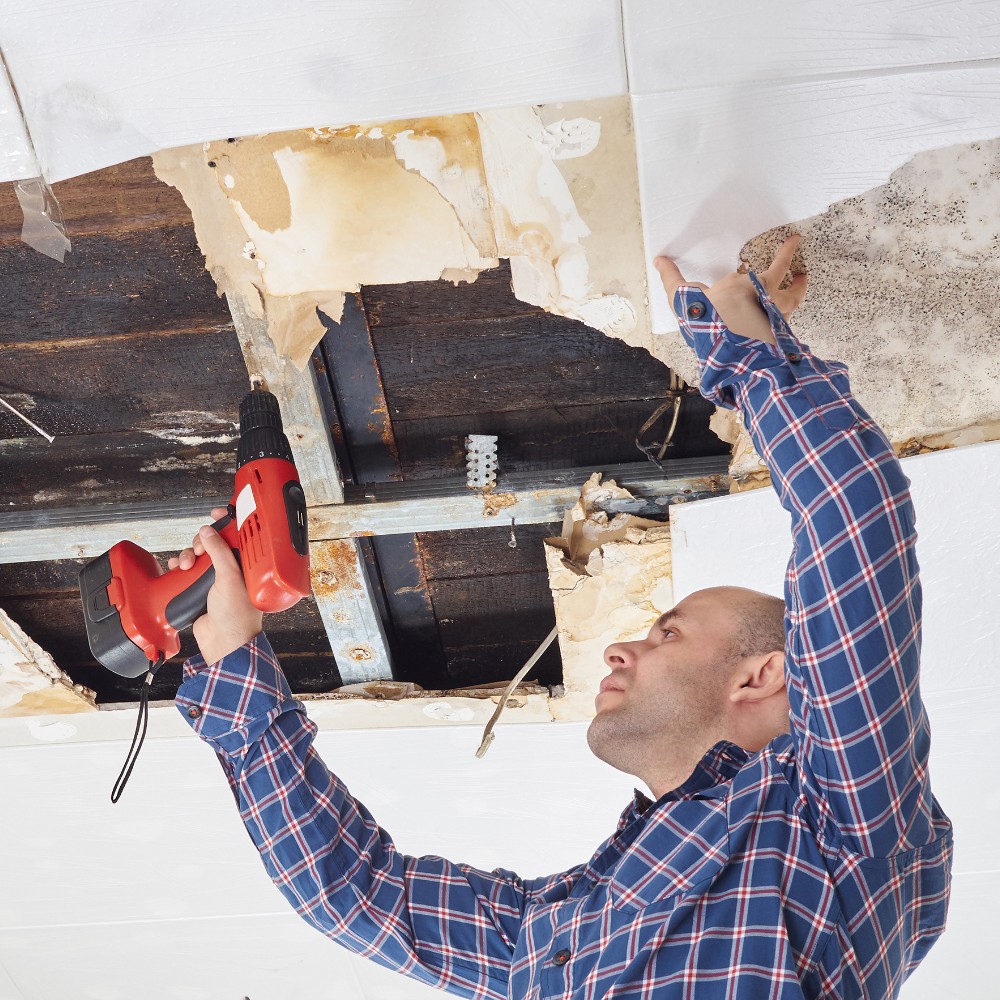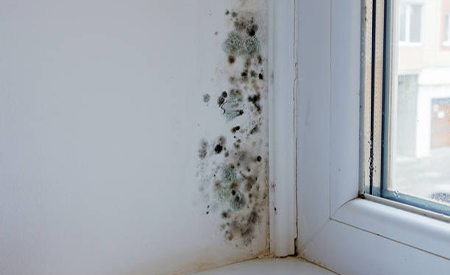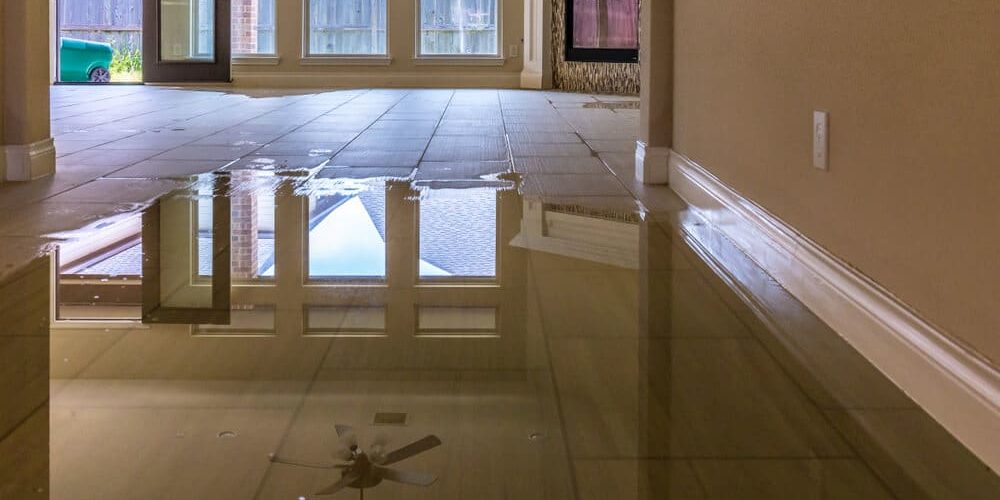Emergency Water Leak Repair to Prevent Further Property Destruction
The Process of Water Damages Clean-up: Guaranteeing Your Home Is Recovered Properly
Water damage can be a complicated challenge for homeowners, demanding a careful and organized cleaning procedure to bring back security and performance. Originally, a thorough analysis is important to determine the level of the damage and identify the ideal removal steps. Following this, effective water extraction strategies play an essential role in mitigating additional damage. Nonetheless, the nuances of drying out, disinfecting, and eventual repair are just as important and commonly neglected. Comprehending these phases can make a significant distinction in the end result of your home's reconstruction, prompting a closer appearance at what each step involves.
Assessing the Damages
Upon discovering water damage, the first action is to thoroughly analyze the degree of the effect. This preliminary evaluation is vital, as it helps identify the necessary steps for effective cleanup and remediation. Begin by evaluating the affected areas, consisting of walls, ceilings, floorings, and individual belongings, to determine the resource of the water breach, whether from flooding, leaks, or condensation.
Documenting the damage is important for both insurance policy cases and preparing repair efforts - damage restoration services. Use photographs and created notes to record the intensity of the damage, noting any kind of affected structural elements and materials. Pay unique interest to areas that might not be promptly noticeable, such as behind walls and under rugs, as hidden wetness can lead to further complications, including mold and mildew growth
In addition, evaluate the timeline of the water direct exposure. The longer the products remain damp, the higher the capacity for damage. Understanding the duration of direct exposure will educate the necessity of remediation efforts. Inevitably, a thorough evaluation prepares for an effective water damage cleaning process, ensuring that all influenced locations are resolved efficiently and thoroughly.
Water Extraction Strategies
.jpg)
Specialists typically utilize submersible pumps for larger quantities of water, which can promptly ease flooding in cellars or other impacted locations. For smaller sized amounts, wet/dry vacuums are commonly used to remove recurring moisture from carpets and difficult surfaces. Additionally, using mobile extractors permits targeted removal in confined areas or locations with delicate materials.
In instances of contaminated water, such as sewer or floodwater, progressed removal strategies may involve the usage of biohazard tools to make certain security and compliance with wellness regulations. High-powered extraction devices are vital in reducing water retention in architectural products, which can result in mold development and structural damage if not resolved immediately.
Ultimately, the efficiency of water extraction techniques plays a critical function in the total success of the water damage cleaning process, laying the foundation for succeeding reconstruction initiatives.
Drying and Dehumidification
As soon as standing water has actually been effectively removed, the next vital stage in the water damages cleaning procedure is drying and dehumidification. This action is vital to protect against more damage and mold and mildew development, which can take place within 24 to 48 hours in damp environments.
To accomplish reliable drying out, specialized equipment such as industrial-grade air movers and dehumidifiers is utilized. Air moving companies circulate air throughout damp surfaces, improving evaporation prices, while dehumidifiers minimize humidity degrees in the air, promoting a helpful atmosphere for drying out. The mix of these devices guarantees that moisture is drawn out from wall surfaces, floors, and home furnishings, permitting them to completely dry completely.
It is necessary to monitor the drying out procedure closely. Specialists often use moisture meters to assess the dampness material in numerous products, guaranteeing that all influenced areas get to acceptable dryness degrees. This meticulous strategy helps to avoid covert wetness pockets that can cause architectural damage Going Here or unhealthy mold and mildew growth.

Cleaning and Disinfecting
After the drying out and dehumidification phase is full, the next crucial step in water damage cleanup is cleaning and disinfecting the affected locations. This process is important to stop the growth of mold and mildew, microorganisms, and various other pathogens that grow in damp environments.
The cleaning phase generally includes removing any kind of debris, dirt, and pollutants from surface areas using specialized cleaning representatives. For difficult surfaces, a mix of soap and water or industrial cleansing items is often used. Soft products, such as upholstery and carpets, may call for more comprehensive cleaning approaches, consisting of steam cleaning or deep extraction strategies, to ensure thorough hygiene.

Disinfecting follows cleaning, using EPA-approved disinfectants to remove hazardous bacteria. This step is essential, specifically in areas that may have entered call with floodwaters or sewer, as these resources can present serious health and wellness dangers.
Additionally, it is essential to deal with any staying smells, which may require the usage of odor neutralizers or sophisticated strategies like ozone treatment. Correct cleansing and disinfecting not only recover the safety and hygiene of your home however likewise prepared for effective restoration and repairs in subsequent stages of the water damage clean-up process.
Reconstruction and Repair Services

When the analysis is complete, remediation initiatives can begin. This typically includes fixing or replacing damaged materials, guaranteeing that all job abides by regional building regulations and standards. If drywall has actually been endangered, it will certainly need to be removed and replaced with brand-new product. Furthermore, floor covering might need comparable focus, depending upon the degree of water exposure.
It is crucial Visit Your URL to engage experienced repair specialists throughout this procedure, as they have the knowledge to deal with complex repair work efficiently. They can help mitigate potential future concerns, such as mold and mildew growth or architectural instability, hence making certain a habitable and risk-free living setting. Ultimately, reliable remediation and repairs recover the home's integrity and improve its total value.
Verdict
Finally, the procedure of water damage cleanup is essential for recovering a home to its pre-damage condition. Each phase, from evaluating the damages to implementing reliable water extraction techniques, followed by complete drying, disinfecting, and essential fixings, plays a necessary duty in guaranteeing safety and security and compliance with building requirements. Efficient execution of these actions not only minimizes immediate damages but likewise improves the long-term honesty and value of the home.
Water damages can be a challenging challenge for house owners, demanding a structured and careful cleaning procedure to recover safety and security and functionality. Eventually, a thorough assessment lays the foundation for a successful water damages cleanup procedure, ensuring that all affected locations are attended to successfully and completely.
Efficient water extraction strategies are necessary in minimizing This Site damages and stopping more problems adhering to a water breach event.In final thought, the process of water damage cleanup is important for restoring a home to its pre-damage problem. Each stage, from examining the damage to implementing effective water extraction strategies, followed by extensive drying out, disinfecting, and required repair work, plays a crucial role in making sure safety and security and compliance with building criteria.